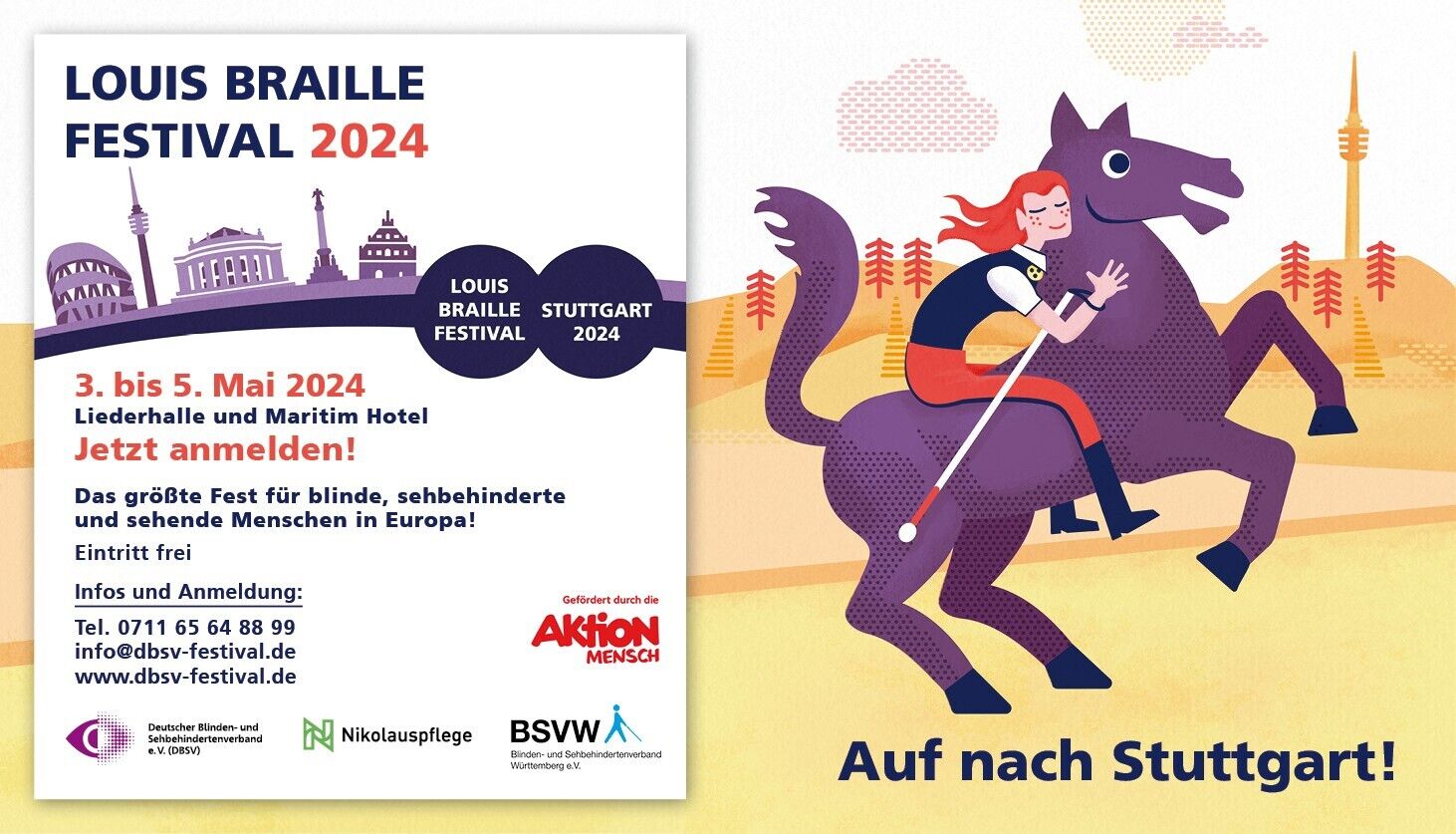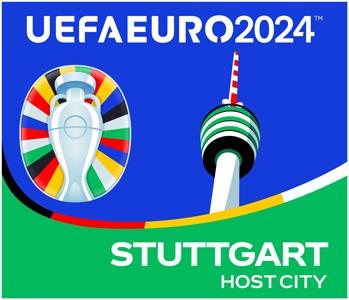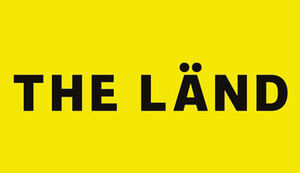
Host City Stuttgart is at the largest festival for the blind and visually impaired in Europe
Host City Stuttgart is represented with stands and hands-on activities at the Louis Braille Festival – the largest festival for the blind and visually impaired in Europe. The clear message: UEFA EURO 2024 unites all people; everyone is welcome here. As the venue for this top international event, we are committed to inclusion and participation for all.
At the festival, people with and without visual impairments celebrate together for three days in Stuttgart. The Host City will be present with a pavilion, a Bolzbox and a table football game. Information and flyers about the audio commentary service are also available. This will be available to all interested parties during UEFA EURO 2024.
The key points of the Louis Braille Festival at a glance:
Time: 3 – 5 May
Location: in Stuttgart's Kultur- & Kongresszentrum Liederhalle, the adjacent Hotel Maritim, the historic Reithalle and on Berliner Platz.
Costs:
admission is free. Important to note: you need to register.
Organiser: the German Federation of the Blind and Partially Sighted (DBSV), the Nikolauspflege – Foundation for Blind and Visually Impaired People and the Württemberg Association for the Blind and Visually Impaired (BSVW).
UEFA EURO 2024 in Stuttgart – a football festival for everyone
Blind and visually impaired fans can use an audio commentary at UEFA EURO 2024, which contains additional information with many details. Fans can bring their own radio and listen to the live commentary on the corresponding frequency via headphones or use their smartphone.
In this way we want to make stadium football more accessible to as wide an audience as possible, and set an example for integration. The starting point is the realisation that many visually impaired or blind people do not attend live events if there is no audio commentary service.
Commentators are specially trained to provide this service. As well as giving details on how the match is going, they provide further information in visually descriptive language about what is happening on the pitch or in the stadium. Many fans without visual impairments now also use the audio commentary and enjoy an even more intense live experience because of this. Due to its easy availability, this service is becoming increasingly popular in Europe's stadiums. UEFA is working closely with its partner CAFE, the Centre for Access to Football in Europe, to provide and optimise audio services.
More information on the audio commentaries during UEFA EURO 2024 can be found here.
I cannot find any EN websites for these institutions, but have still left the names translated in English, as it is beneficial for this content,
Public viewing without restrictions
Naturally, the fan zones in Stuttgart are also accessible to people with disabilities. Inductive hearing systems will therefore be available during public viewing in the Schlossplatz fan zone. Audio signals can therefore be fed directly into hearing aids. They can be borrowed from the service point on Schlossplatz near the wall of the Old Palace.
The Louis Braille Festival in Stuttgart
For three days, the 5th Louis Braille Festival will once again focus on people with and without visual impairments celebrating together.
Visitors can...
- ...experience blind football or tennis,
- ...watch trained guide dogs at work,
- ...take part in workshops
- ...or simply wander through the colourful programme of sport, music, culture, comedy and quiz shows. There are readings, church services and concerts.
Those interested can also take part in guided tours of Stuttgart and visit museums.
The complete programme for the 5th Louis Braille Festival can be found here
What is braille?
The festival takes its name from Louis Braille, the French inventor of the famous braille system. Braille, who had lost his sight after an accident, developed this writing system in 1825 at the age of just 16. This involves feeling with your fingers over embossed dots in the paper. With six dots, it can display the entire alphabet and many special characters.
This meant that blind and visually impaired people were finally able to read written material – a possibility from which they had previously been excluded. The World Health Organisation (WHO) estimates that around 2.2 billion people worldwide suffer from visual impairments and around 43 million people are blind.
In the age of digital texts, computers and mobile phones have reader programmes that read out the screen content. And a so-called braille line is set up on special keyboards. A bar that can display the letters on the screen as tactile braille.
Voice or gesture-controlled functions are also a great help when navigating the digital world. Smartphones for the visually impaired also have buttons that are labelled with braille. At the Stuttgart Braille Festival, there are braille readings, and those interested can have the braille script explained to them and try it out for themselves.




